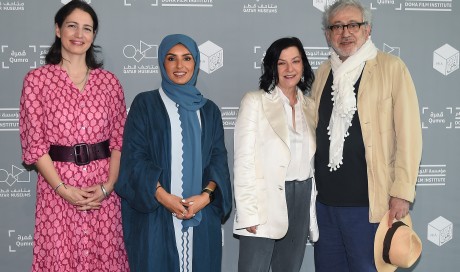On the one-year anniversary of the Qatar crisis, the conflict between Doha and its Arab neighbours sheds light on two major issues - Washington’s limited influence in pushing for a settlement and the Trump administration's strategic inconsistency.
US regional partners Saudi Arabia, UAE, Bahrain and Egypt cut ties with the small Qatari peninsula - also a US partner - on 5 June last year.
The four countries, known as the Quartet, cite Qatar's support for terrorist organisations, close links to Iran and reneging on their commitments to the 2013 Riyadh agreement - including ceasing support for "deviant groups" - as reasons for the break in relations.
While the Quartet has, from the onset of the crisis, pushed for a regional solution rather than an international one, the US has continuously waded in, in an attempt to play mediator.
But a US official who spoke to The Nationalon condition of anonymity, said that Washington’s hopes for a resolution had dwindled over the past two months.
President Donald Trump had hoped to bring together Gulf leaders in May at Camp David. In April the talks were pushed to September and may no longer address the deadlock in the Qatar crisis. US officials said that Washington postponed the summit because of a busy calendar.
But the Qatar conflict, which took Washington by surprise, is no longer a critical item on the agenda of US-Gulf meetings and has instead been overshadowed by the Iranian nuclear programme, the war in Yemen and other more pressing bilateral issues such as trade and defence.
“This is not a priority for us or for them [US],” an Arab diplomat from one of the Quartet told The National. “We told the Americans we can have low-level meetings with Doha, as a save face measure.”
The issues, said the diplomat, are deeper - "and we don't see a change." Resolving the Qatar problem, he added, had become marginal and if talks were to take place they would fall under deputy-ministerial duties.
The four Arab countries continue to stand firm in their decision to boycott Qatar, saying they are willing to re-establish ties with Doha only if it adheres to regional and international agreements as well as their demands and principles.
...[ Continue to next page ]
Share This Post












